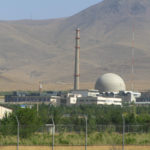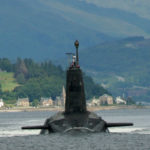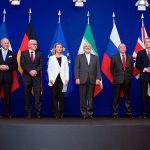France began its nuclear weapons program in the early 1950s in an effort to restore political and military parity with their perceived peers and potential adversaries. In the wake of the United Kingdom and Russia acquiring nuclear capabilities, France moved quickly and produced its first plutonium bomb on July 1, 1963. The size, structure and doctrine […]
Academic article: How to fix, preserve and strengthen the Open Skies Treaty
Senior Policy Director Alexandra Bell co-authored an article in Deep Cuts on how to save the Open Skies Treaty. A picture, it is said, is worth 1,000 words. The image-centric Treaty on Open Skies (Open Skies) embodies that concept perfectly. The trusted pictures shared among all the Parties to the treaty create more certainty than […]
Trump team was right to extend Iran deal waivers
By Samuel Hickey On January 30, the Trump Administration extended four nuclear waivers allowing Russia, China and the UK to continue their work to restrain Iran’s nuclear program. While this move is good for American security, there are Iran hawks in the Senate who advocate rescinding all waivers related to the 2015 Joint Comprehensive Plan […]
Four Nuclear Submarines and a Tory Majority: Why renewed calls for Scottish independence could spell trouble for the UK’s nuclear weapons
By Liv Galbraith While the path to an independent Scotland faces significant roadblocks, the renewed possibility of Scottish independence brings up questions about Scotland, the United Kingdom, and their respective places in the world. One of these questions, unresolved from 2014, is as much a question of the philosophical as the practical: what is the future of […]
A quick guide to the JCPOA Dispute Resolution Mechanism
By Samuel Hickey, Research Analyst On January 14, 2020, the E3 (France, Germany and the United Kingdom) together triggered the dispute resolution mechanism (DRM) enshrined in the 2015 Joint Comprehensive Plan of Action (JCPOA), better known as the Iran nuclear deal. The E3 have been threatening this action for months and the E3 countries are […]



